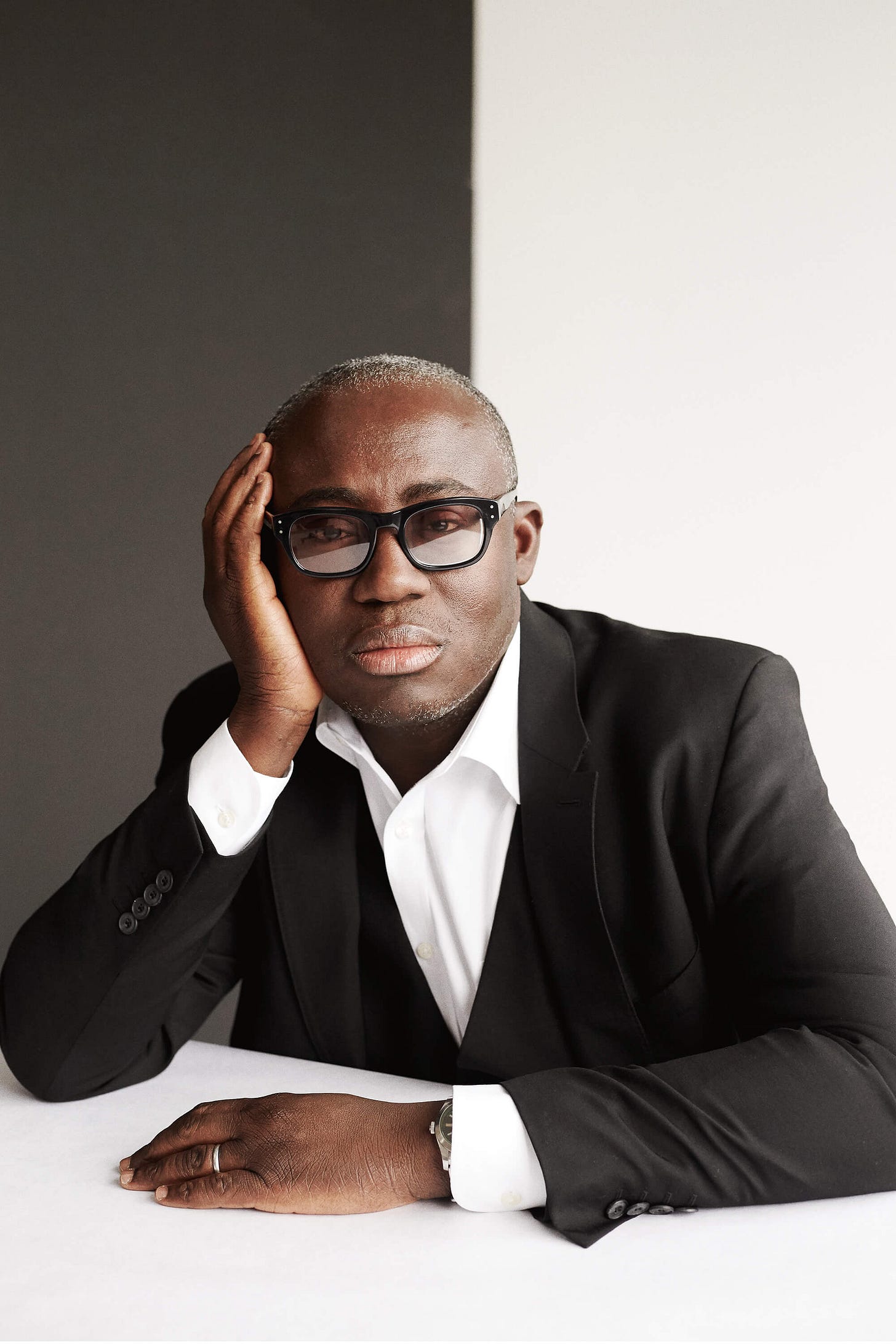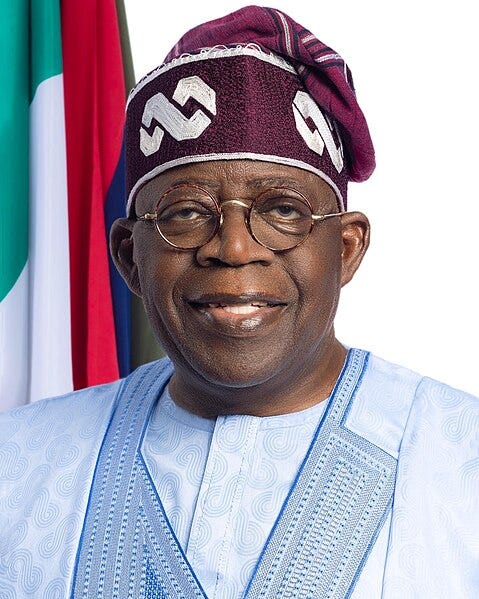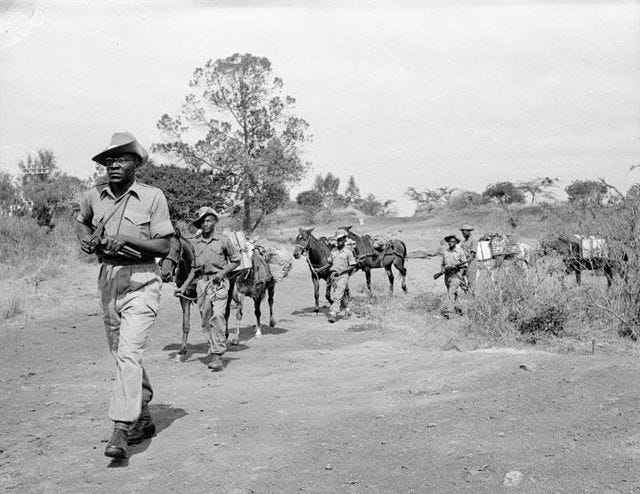🔅 "Why Didn't We Like Lumumba?" & The UK's Most Influential Black Person
Plus, Nigerian President's Victory Is Confirmed: Controversy Persists & The Mau Mau Await A Royal Apology
Photo of the day
Ganvié, Benin

Markets:
🟢 Nigerian SE: 67,136.58 (+31.00%)
🔴 Johannesburg SE: 69,451.97 (-4.92%)
🟢 Ghana SE: 3,125.72 (+27.90)
🔴 Nairobi SE: 89.42 (-29.85%)
🟢 US S&P 500: 4,117.37 (+7.67%)
🔴 Shanghai Composite: 3,017.78 (-3.17%)
Kenya Raises Budget Deficit Forecast, Blames It on the Weakening Shilling | The Kenyan government has revised its budget deficit forecast for the 2023/24 financial year, citing the weakening of the Kenyan shilling against the dollar. This means they’ll need more cash to repay foreign debts, including a $2 billion Eurobond due next June. But don’t worry, President William Ruto says his government is totally serious about reining in ballooning debt. They just didn’t anticipate the shilling taking such a steep nosedive (down 18% against the dollar this year, to be exact). “Time to drop politics and look at the reality in the world economies,” said Finance Minister Njuguna Ndung'u. Because apparently, reality is a stubborn thing.
*Data accurate as of the close of markets across the continent
Brief & Bright: Africa's Top Five
"Why didn't we like Lumumba?"
Patrice Lumumba was the charismatic first prime minister of Congo who was murdered at the young age of 35. But his brief and tumultuous life set the stage for coups and interference in post-colonial Africa that is worth revisiting during this resurgent period of anti-colonial rhetoric, and at a time when elections in Congo are on the horizon. A new biography by the editor of Foreign Policy magazine, Stuart Reid, takes a deep dive into Lumumba's life, which includes the story of Africa's first post-colonial coup, as well as the UN's first big peacekeeping mission. The book is a thrilling read, with plenty of villains, including shady Belgian officials, scheming UN bureaucrats, and even a Greek hitman who took the money and ran. Lumumba himself is not without flaws, having once embezzled money as a postal clerk. Despite that, Lumumba was a force to be reckoned with, and his anti-colonial rhetoric didn't sit well with Belgium, who tried to assassinate him multiple times. The US, with their fear of communism, also saw him as a threat and ordered his assassination. It was ultimately a CIA-backed coup that led to Lumumba's gruesome death, and Congo has been ruled by despots ever since. In an unbelievable turn of events, when the CIA official Richard Helms was asked by a Senate inquiry what was wrong with Lumumba, his answer was, "I can't remember any more what it was... What was wrong with Lumumba? Why didn't we like him?"
Rugby World Cup Final: South Africa Takes Home the Win
It was a night of firsts and epic showdowns as South Africa successfully defended their Rugby World Cup title. And it was a tale of two captains: Siya Kolisi, South Africa’s first black rugby captain, lifted the Webb Ellis Cup for the second time, while All Black Sam Cane was sent off in the 27th minute for a “high degree of danger” tackle. But the game was far from over, with both teams fighting fiercely until the end. Even tennis legends Roger Federer and Novak Djokovic would have been impressed by the intense gladiatorial combat on the field as they sat high up in the stands. In the end, it was South Africa’s never-say-die attitude that won them the game, making light of injuries and adversity. With this victory, South Africa joins New Zealand as the only men’s team to win successive World Cup finals but also becoming the first team to win four men’s titles. It was a nail-biting match, with both teams leaving everything on the field. South Africa can now bask in the ultimate glory while the northern hemisphere (with only one World Cup win in 10 attempts) has some catching up to do.
Ghanaian-Born Editor-in-Chief of British Vogue Named UK's Most Influential Black Person
Move over, Harry and Meghan—there’s a new power couple in town. And by couple, we mean person. And by town, we mean country. Edward Enninful, the first black man to hold the top job at British Vogue, has been named the UK’s most influential black person by the Powerlist 2024. Other notable names on the list include Afua Kyei, Bank of England’s CFO, and Dragon’s Den star and podcaster Steven Bartlett. Enninful, who is also the European editorial director of Condé Nast, is honored to top the list, which highlights black role models for young people. Born in Ghana, he moved to London as a kid and was scouted as a model on a train. Now, he’s making waves in the fashion industry and inspiring others to do the same. Enninful has previously said that his May issue of the magazine, which featured five disabled cover stars, was "one of the proudest moments of my career".
Nigerian President's Victory Is Confirmed: Controversy Persists
In a court ruling that had all the drama of a Nollywood soap opera, President Bola Ahmed Tinubu's election victory was officially cemented on Thursday. The opposition, led by Atiku Abubakar, had challenged the results of February's vote, claiming electoral malpractice and ineligibility on Tinubu's part. They even tried to bring in new evidence that Tinubu's educational qualifications were forged, but the Supreme Court shut them down. Some say it was a case of too little, too late. Tinubu's political career has long been plagued by controversy and allegations of corruption. Some even say he may have adopted someone else's identity. But despite all the drama, Tinubu manages to stay in power, with the support of his loyal followers. As for his educational qualifications, well, let's just say they're a bit of a mystery. But according to Nigerian law, he doesn't even need a degree to be president. Who knew?
Waiting for Justice: A Mau Mau Fighter's Quest for A Royal Apology
Gitu Wa Kahengeri has been waiting for over six decades for an apology and compensation from the British government. Why? Because as a teenager, he was jailed, tortured, and denied food in a British-run labour camp in Kenya for fighting against colonial rule. Now in his nineties, Gitu is stepping up his push for justice ahead of a visit by King Charles III to the country. The Mau Mau rebellion, led by guerrillas often with dreadlocked hair and animal skins, terrorized colonial communities for eight years. For the likes of Gitu, it was about fighting for freedom from the colonial settlers who had taken all the fertile land for themselves. After being arrested and detained for seven years, Gitu is calling on Charles not only to apologize but also to return any artefacts taken from Kenya. In 2013, Britain agreed to compensate over 5,000 Kenyans for their suffering during the revolt, but Gitu says it's not enough. He's urging the British government to go beyond the typical public statement of regret for abuses committed, and do more to reconcile with the Mau Mau veterans and their families.
Food for Thought
"One who has to yet learn to walk cannot climb a ladder."
— Ethiopian Proverb








